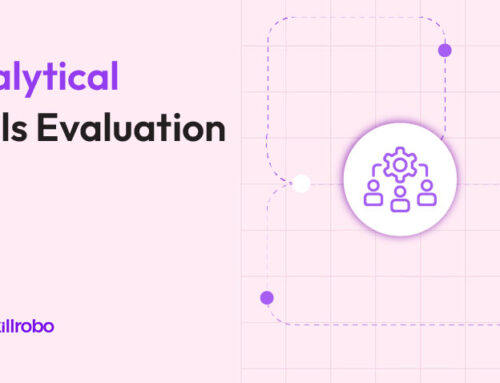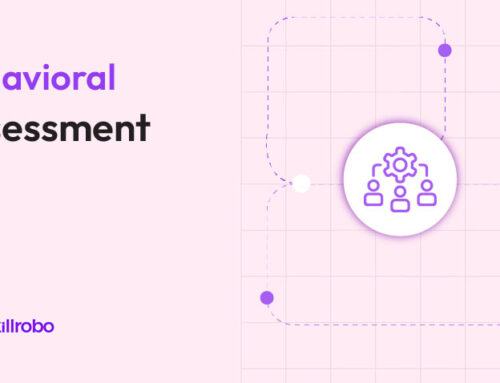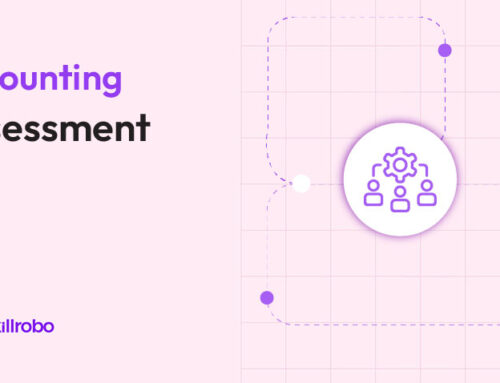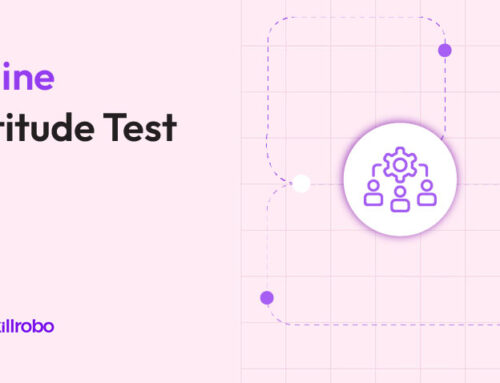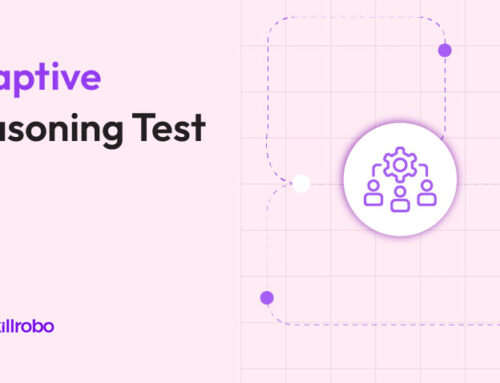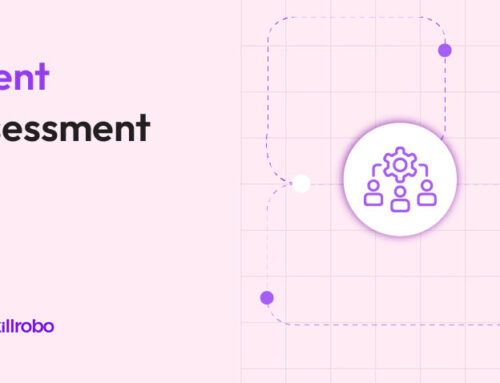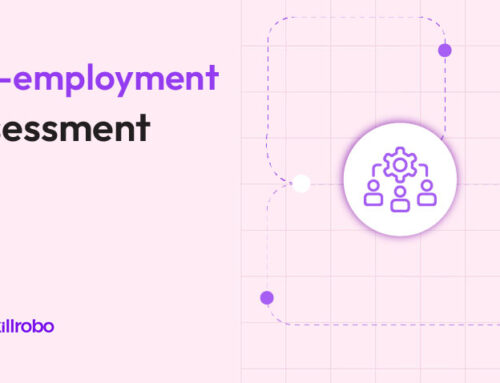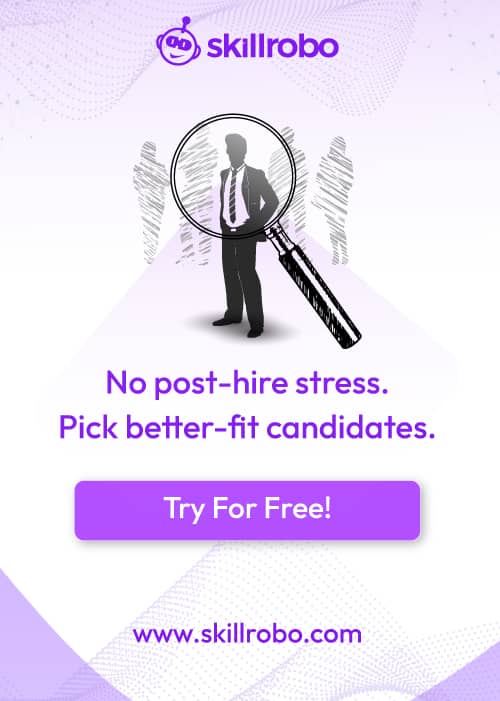Table of Contents
Related articles

Key Takeaways
- Accounting skill assessments go beyond resumes to verify technical and soft skills for different accounting roles.
- From pre-employment aptitude tests to customized job simulations, assessments improve hiring accuracy and reduce turnover.
- AI-driven skill assessment tools help HR teams screen faster, make data-driven decisions, and improve compliance in hiring.
- Choosing the right assessment method depends on the role, accounting standards, and your internal skill requirements.
Why Skill Assessment in Accounting Matters
In a financial landscape defined by automation, compliance, and complex reporting standards, skill assessment for accounting has become more critical than ever. Whether you're recruiting for a junior accountant or a CFO, one thing remains constant—you need proof of skill, not just a polished resume.
Skill assessments provide hiring teams with objective data to evaluate candidates' knowledge of financial principles, regulatory standards, technical systems, and critical thinking. It minimizes hiring errors, improves workforce readiness, and ensures your accounting department delivers value from day one. In this blog, we explore how to effectively assess accounting skills and why it matters.
What Is Skill Assessment for Accounting?
Skill assessment for accounting is a structured process used by hiring teams to measure a candidate's proficiency across key accounting competencies. These include not only technical knowledge of accounting standards like GAAP and IFRS, but also software literacy, analytical reasoning, compliance awareness, and even ethical decision-making.
Unlike traditional interviews that often rely on resumes and subjective impressions, accounting skill assessments are data-driven, standardized, and aligned with actual job responsibilities. They simulate workplace scenarios and offer tangible insights into how well a candidate can perform under real conditions.
Common formats in a skill assessment for accounting include:
- Multiple-choice questions on topics like revenue recognition, asset valuation, and audit procedures
- Spreadsheet simulations using Excel or Google Sheets to test accuracy, formulas, and financial modeling
- Financial case studies requiring interpretation of P&L statements, cash flow analysis, or budgeting exercises
- Software navigation tests involving QuickBooks, Xero, SAP, or other industry platforms
- Communication tasks, such as preparing reports or explaining variances to non-finance stakeholders
These assessments are critical in identifying candidates who go beyond understanding debits and credits. They help pinpoint individuals who bring precision, analytical depth, and strategic thinking to the accounting function, ensuring that new hires are ready to contribute from day one.
How to Do a Skill Assessment for Accounting
Conducting a successful skill assessment for accounting requires a structured approach that aligns with your hiring goals and organizational needs. Here are the five essential steps to implement this process effectively:
Step 1: Define Skill Requirements
Start by identifying the core competencies and technical proficiencies required for each accounting role. For example, a junior accountant may need skills in reconciliation, accounts payable, and bookkeeping, while a senior accountant or finance manager may require auditing knowledge, compliance reporting, and strategic forecasting. Defining these expectations ensures that the assessment targets the right areas and avoids unnecessary complexity.
Step 2: Choose the Right Assessment Type
The effectiveness of your skill assessment depends on choosing the right format for the role you're hiring. Generic, one-size-fits-all tests fall short—your assessment must reflect the complexity and context of the job.
- Pre-employment screening tests: These are ideal for filtering large volumes of early-career or entry-level applicants. Focus on evaluating foundational accounting knowledge, numeracy, and logic. Timed tests with objective scoring help shortlist only those who meet your baseline criteria.
- Role-specific simulations: Mid to senior-level positions demand more than textbook knowledge. Simulate real-world tasks such as preparing trial balances, reconciling accounts, or generating financial statements. These assessments measure how candidates respond to realistic pressure and software usage, offering a glimpse into their day-to-day performance.
- Soft skills evaluations: For roles that involve client communication, audits, or team leadership, assess traits like communication, accountability, and problem-solving. Use scenario-based questions or behavioral assessments to gauge how candidates handle ethical dilemmas, collaboration, and stakeholder interactions.
Tailoring assessment types by role ensures you're evaluating both competence and application, leading to better job fit and reduced hiring risk.
Step 3: Use a Validated Assessment Tool
Accuracy and reliability matter. A high-quality assessment tool goes beyond question banks—it ensures the results truly reflect a candidate's potential.
Look for platforms that offer:
- Scientifically validated tests: Designed by psychometricians or experts, these tests measure cognitive and technical skills with accuracy.
- Detailed analytics: Access insights into performance by domain, benchmark scores, and percentile rankings to compare candidates fairly.
- Secure testing environment: Tools should include browser lockdowns, randomization, and anti-cheating protocols to ensure test integrity.
- Custom templates: Pre-designed templates for roles like Junior Accountant, Payroll Specialist, or Financial Analyst save time while ensuring role relevance.
Platforms like Skillrobo combine ready-made and customizable assessments with built-in analytics and compliance safeguards—ideal for scalable, bias-free evaluations.
Step 4: Integrate into Hiring Workflow
An assessment strategy is only effective if it's seamlessly embedded into your existing hiring process.
- ATS Integration: Connect your assessment platform with your Applicant Tracking System to automatically trigger test invitations based on the application stage.
- Early-stage testing: Schedule assessments immediately after resume screening. This reduces the time spent interviewing unqualified candidates.
- Use test results as qualifiers: Set thresholds for test scores that determine interview eligibility or ranking. This data-first approach removes subjectivity from initial screening.
Integrating assessments ensures that HR teams and hiring managers can work more efficiently while improving candidate quality from the outset.
Step 5: Act on the Results
The final (and most critical) step is to apply the insights gained from the assessment to make informed decisions—not just about hiring, but also about growth and development.
- Accelerate top performers: Candidates with high test scores can be fast-tracked into interview stages or considered for more advanced roles.
- Support borderline candidates: If a candidate has potential but needs improvement in a specific area (like Excel modeling or compliance knowledge), use this data to plan onboarding and training support.
- Upskilling and training: Test results don't just aid hiring—they also provide a baseline for ongoing employee development. Use them to conduct training needs analysis and launch targeted upskilling initiatives for your accounting team.
When skill assessments are integrated into the full employee lifecycle, they support better workforce planning, higher engagement, and long-term retention.
Skill Assessment Test for Accounting: What Should You Include?
An effective skill assessment test for accounting should simulate real-world accounting tasks, allowing employers to evaluate not only what a candidate knows but also how they apply that knowledge in practical situations. The test should cover both technical and analytical skills, and ideally, be tailored to match the complexity and requirements of the role in question.
Here's a breakdown of the essential skill areas and the types of tasks to include:
| Skill Area | Sample Test Activity |
|---|---|
| Journal Entries | Provide scenarios where candidates must match transactions to the correct debit/credit accounts. This tests their understanding of core accounting principles and attention to detail. |
| Financial Analysis | Ask candidates to analyze income statements, balance sheets, and cash flow reports to extract key insights. This assesses their financial literacy and decision-making capabilities. |
| Excel Proficiency | Include spreadsheet-based tasks where they must apply formulas, perform lookups, and create financial models to simulate cash flow or budgeting exercises. |
| Accounting Regulations | Use multiple-choice questions based on GAAP, IFRS, or local standards. This helps verify a candidate's compliance knowledge and awareness of legal requirements. |
| ERP Software | Provide simulations or task-based questions involving common accounting platforms like QuickBooks, Xero, or SAP. Candidates may be asked to process invoices, generate reports, or reconcile accounts. |
These assessments should be timed, scored, and benchmarked to ensure fairness and consistency across all candidates. Automated scoring combined with candidate comparison metrics can help hiring teams identify top performers quickly, without bias.
A well-rounded test not only validates a candidate's ability to perform job-specific tasks but also offers insight into their efficiency, accuracy, and adaptability—all critical traits in today's evolving accounting landscape.
Skill Assessment for Accounting Requirements: What HR Must Know
When designing or selecting a skill assessment for accounting, HR professionals must go beyond simply testing basic financial knowledge. A successful assessment must be relevant, compliant, data-driven, and scalable. Pre-employment assessment tests play a critical role in this process by helping identify job-ready candidates early, ensuring every hire meets both technical and organizational standards.
1. Align with Role Level
The complexity of the test should match the seniority of the role. Entry-level positions might focus on basic bookkeeping, data entry, and foundational accounting principles. In contrast, assessments for mid-senior or controller-level roles should include tasks like financial reporting, auditing, and regulatory compliance scenarios. Role alignment ensures the test measures real-world job readiness, not just textbook knowledge.
2. Reflect Industry Standards
Different industries have distinct accounting frameworks and regulatory requirements. A skill assessment designed for the banking sector will differ from one tailored to SaaS companies, government finance departments, or manufacturing firms. HR should ensure the assessment reflects sector-specific terminology, processes, and reporting expectations.
3. Ensure EEOC Compliance
All assessments must be fair, non-discriminatory, and legally defensible. Following the guidelines of the Equal Employment Opportunity Commission (EEOC) helps ensure that tests do not disadvantage candidates based on gender, ethnicity, age, or disability. Tests must be scientifically validated and job-relevant to avoid legal complications.
4. Leverage Auto-Scoring and Analytics
Modern assessment platforms offer automated scoring, section-wise breakdowns, and benchmarking. This helps HR make quick, unbiased decisions and provides clear documentation of why a candidate was selected or rejected. These analytics also support workforce planning and training needs analysis.
5. Enable Remote and Scalable Administration
With a hybrid and remote-first work environment, assessments should be easy to administer online. Platforms should offer secure browser modes, camera monitoring, and time tracking to ensure test integrity, especially when hiring across regions or time zones.
6. Prioritize Data Privacy and Security
When handling candidate data, it's essential to follow GDPR or local data privacy regulations. Platforms must offer secure cloud infrastructure, encrypted test environments, and clear data usage policies to protect both the company and the applicants.
By aligning assessments with job roles, legal standards, and organizational goals, HR leaders can ensure that their accounting hires are not only technically capable but also aligned with the company's values and operational needs.
Top Benefits of Accounting Skill Assessments
Accounting skill assessments offer more than just technical evaluations—they provide measurable advantages that enhance hiring, onboarding, and talent management while improving decision-making, reducing bias, and supporting long-term workforce planning initiatives. Here's how –
1. Improved Hiring Accuracy
Skill assessments remove the guesswork from hiring by testing actual job-related abilities instead of relying on resumes or interviews alone. This ensures that candidates not only claim to have the skills but can demonstrate them in real-world tasks.
2. Faster Screening
Automated pre-employment tests help you filter large applicant pools quickly by ranking candidates based on skill performance. This saves recruiters time by bringing only the most qualified candidates to the next round.
3. Reduced Turnover
By ensuring a good match between a candidate's skills and job demands, skill assessments help reduce early-stage attrition. Hiring candidates who are genuinely prepared for the job leads to better retention and lower recruitment costs.
4. Support for Succession Planning
Accounting skill assessments help identify high-potential employees who could take on larger responsibilities in the future. Regular assessments allow organizations to build a pipeline of capable leaders and future finance heads.
5. Objective Measurement
Unlike interviews, which can be influenced by unconscious bias, skill assessments provide standardized scoring and data-driven results. This ensures fair, equitable evaluations for all applicants, improving DEI (diversity, equity, inclusion) efforts.
6. Upskilling Insights
Assessments don't just evaluate new candidates—they also help in tracking the capabilities of existing staff. HR and L&D teams can use the results to identify skill gaps and create personalized training and development plans.
7. Boosted Compliance
In industries like finance and accounting, where compliance with regulations (such as GAAP or IFRS) is essential, assessments help ensure new hires meet baseline regulatory and procedural standards, reducing legal and financial risk.
8. Better ROI
Making a bad hire can be expensive, not just in lost productivity, but also in re-hiring and training costs. Skill assessments improve hiring quality and alignment, saving money and boosting ROI across recruitment and onboarding.
These benefits make accounting skill assessments a critical part of any data-driven recruitment, talent management, and employee evaluation software strategy. By integrating assessments into your hiring and development workflows, you build a stronger, more capable finance team.
Using Skill Assessment Platforms: What to Look For
Choosing the right skill assessment platform for accounting is critical to making informed, data-driven hiring decisions. A well-equipped platform goes beyond basic testing and delivers a tailored, accurate evaluation of each candidate's capabilities.
Here are the key features to look for:
1. Accounting-Specific Test Libraries
The platform should offer a wide range of pre-built assessments focused on core accounting areas, such as bookkeeping, payroll, financial reporting, and compliance.
2. Customizable Question Banks
No two companies are alike. A good platform allows HR teams to edit, add, or remove questions to reflect the specific needs of the role or organization.
3. Simulation-Based Evaluations
Realistic simulations—like reconciling statements or adjusting journal entries—can better predict on-the-job performance compared to generic tests.
4. AI-Powered Test Scoring
Automated scoring supported by AI helps reduce human bias and speeds up candidate evaluation. Some systems also flag anomalies or offer predictive hiring insights.
5. Detailed Candidate Reports
Look for platforms that generate comprehensive reports including scores, percentile ranks, and performance breakdowns by topic. These reports should be easy to interpret for both recruiters and hiring managers.
6. ATS Integration and Data Export Options
Seamless integration with your Applicant Tracking System ensures a smooth workflow. Exporting results for record-keeping or analytics should also be quick and simple.
7. Mobile-Friendly, Secure Test Delivery
As hybrid and remote hiring grows, assessments must be accessible on multiple devices while maintaining strict security protocols to prevent cheating or data breaches.
Choosing a platform with these capabilities ensures your accounting skill assessments are robust, compliant, and aligned with real business needs, leading to smarter hiring and stronger teams.
Skillrobo for Accounting Skill Assessments
Skillrobo is a leading online pre-employment assessment tool that offers targeted accounting test libraries, customizable workflows, and deep analytics. HR teams can easily screen candidates for technical accounting knowledge, logic, data interpretation, and regulatory awareness.
Features:
- Drag-and-drop test builder with real-world accounting scenarios
- Automatic grading and detailed reports
- Anti-cheating protocols for secure remote testing
- Integration with major ATS platforms
- Adaptive testing to fit job role and experience level
Skillrobo enables data-driven recruitment and ensures only top talent reaches the next stage of hiring.
Conclusion
Skill assessment for accounting is no longer optional—it's a strategic necessity. Whether you're hiring for entry-level bookkeepers or senior finance managers, the right assessments improve speed, precision, and performance outcomes.
Modern tools make it easy to implement reliable and compliant assessments that support skills-based hiring, talent mobility, and employee talent assessment. If you want to future-proof your hiring process, start with the right accounting skill assessment strategy. Platforms like Skillrobo make it simple, scalable, and effective.
Ready to hire smarter? Start using data-driven accounting skill assessments with Skillrobo. Sign up for free and streamline your hiring today.
Frequently Asked Questions
1. What is a skill assessment for accounting?
It's a structured test to evaluate a candidate's ability in areas like financial reporting, analysis, software use, and regulatory compliance.
2. Why are accounting skill assessments important in hiring?
They help reduce hiring errors, validate expertise, and improve workforce readiness through data-backed evaluations.
3. What should an accounting skill test include?
Tests should cover journal entries, Excel, software use, GAAP/IFRS knowledge, and financial analysis.
4. Are accounting skill assessments suitable for remote hiring?
Yes. Most platforms support secure, remote testing with AI proctoring and instant results.
5. Can accounting skill assessments support internal promotions?
Absolutely. They're useful in talent development assessments and identifying leaders for future roles.

Key Takeaways
- Accounting skill assessments go beyond resumes to verify technical and soft skills for different accounting roles.
- From pre-employment aptitude tests to customized job simulations, assessments improve hiring accuracy and reduce turnover.
- AI-driven skill assessment tools help HR teams screen faster, make data-driven decisions, and improve compliance in hiring.
- Choosing the right assessment method depends on the role, accounting standards, and your internal skill requirements.
Why Skill Assessment in Accounting Matters
In a financial landscape defined by automation, compliance, and complex reporting standards, skill assessment for accounting has become more critical than ever. Whether you're recruiting for a junior accountant or a CFO, one thing remains constant—you need proof of skill, not just a polished resume.
Skill assessments provide hiring teams with objective data to evaluate candidates' knowledge of financial principles, regulatory standards, technical systems, and critical thinking. It minimizes hiring errors, improves workforce readiness, and ensures your accounting department delivers value from day one. In this blog, we explore how to effectively assess accounting skills and why it matters.
What Is Skill Assessment for Accounting?
Skill assessment for accounting is a structured process used by hiring teams to measure a candidate's proficiency across key accounting competencies. These include not only technical knowledge of accounting standards like GAAP and IFRS, but also software literacy, analytical reasoning, compliance awareness, and even ethical decision-making.
Unlike traditional interviews that often rely on resumes and subjective impressions, accounting skill assessments are data-driven, standardized, and aligned with actual job responsibilities. They simulate workplace scenarios and offer tangible insights into how well a candidate can perform under real conditions.
Common formats in a skill assessment for accounting include:
- Multiple-choice questions on topics like revenue recognition, asset valuation, and audit procedures
- Spreadsheet simulations using Excel or Google Sheets to test accuracy, formulas, and financial modeling
- Financial case studies requiring interpretation of P&L statements, cash flow analysis, or budgeting exercises
- Software navigation tests involving QuickBooks, Xero, SAP, or other industry platforms
- Communication tasks, such as preparing reports or explaining variances to non-finance stakeholders
These assessments are critical in identifying candidates who go beyond understanding debits and credits. They help pinpoint individuals who bring precision, analytical depth, and strategic thinking to the accounting function, ensuring that new hires are ready to contribute from day one.
How to Do a Skill Assessment for Accounting
Conducting a successful skill assessment for accounting requires a structured approach that aligns with your hiring goals and organizational needs. Here are the five essential steps to implement this process effectively:
Step 1: Define Skill Requirements
Start by identifying the core competencies and technical proficiencies required for each accounting role. For example, a junior accountant may need skills in reconciliation, accounts payable, and bookkeeping, while a senior accountant or finance manager may require auditing knowledge, compliance reporting, and strategic forecasting. Defining these expectations ensures that the assessment targets the right areas and avoids unnecessary complexity.
Step 2: Choose the Right Assessment Type
The effectiveness of your skill assessment depends on choosing the right format for the role you're hiring. Generic, one-size-fits-all tests fall short—your assessment must reflect the complexity and context of the job.
- Pre-employment screening tests: These are ideal for filtering large volumes of early-career or entry-level applicants. Focus on evaluating foundational accounting knowledge, numeracy, and logic. Timed tests with objective scoring help shortlist only those who meet your baseline criteria.
- Role-specific simulations: Mid to senior-level positions demand more than textbook knowledge. Simulate real-world tasks such as preparing trial balances, reconciling accounts, or generating financial statements. These assessments measure how candidates respond to realistic pressure and software usage, offering a glimpse into their day-to-day performance.
- Soft skills evaluations: For roles that involve client communication, audits, or team leadership, assess traits like communication, accountability, and problem-solving. Use scenario-based questions or behavioral assessments to gauge how candidates handle ethical dilemmas, collaboration, and stakeholder interactions.
Tailoring assessment types by role ensures you're evaluating both competence and application, leading to better job fit and reduced hiring risk.
Step 3: Use a Validated Assessment Tool
Accuracy and reliability matter. A high-quality assessment tool goes beyond question banks—it ensures the results truly reflect a candidate's potential.
Look for platforms that offer:
- Scientifically validated tests: Designed by psychometricians or experts, these tests measure cognitive and technical skills with accuracy.
- Detailed analytics: Access insights into performance by domain, benchmark scores, and percentile rankings to compare candidates fairly.
- Secure testing environment: Tools should include browser lockdowns, randomization, and anti-cheating protocols to ensure test integrity.
- Custom templates: Pre-designed templates for roles like Junior Accountant, Payroll Specialist, or Financial Analyst save time while ensuring role relevance.
Platforms like Skillrobo combine ready-made and customizable assessments with built-in analytics and compliance safeguards—ideal for scalable, bias-free evaluations.
Step 4: Integrate into Hiring Workflow
An assessment strategy is only effective if it's seamlessly embedded into your existing hiring process.
- ATS Integration: Connect your assessment platform with your Applicant Tracking System to automatically trigger test invitations based on the application stage.
- Early-stage testing: Schedule assessments immediately after resume screening. This reduces the time spent interviewing unqualified candidates.
- Use test results as qualifiers: Set thresholds for test scores that determine interview eligibility or ranking. This data-first approach removes subjectivity from initial screening.
Integrating assessments ensures that HR teams and hiring managers can work more efficiently while improving candidate quality from the outset.
Step 5: Act on the Results
The final (and most critical) step is to apply the insights gained from the assessment to make informed decisions—not just about hiring, but also about growth and development.
- Accelerate top performers: Candidates with high test scores can be fast-tracked into interview stages or considered for more advanced roles.
- Support borderline candidates: If a candidate has potential but needs improvement in a specific area (like Excel modeling or compliance knowledge), use this data to plan onboarding and training support.
- Upskilling and training: Test results don't just aid hiring—they also provide a baseline for ongoing employee development. Use them to conduct training needs analysis and launch targeted upskilling initiatives for your accounting team.
When skill assessments are integrated into the full employee lifecycle, they support better workforce planning, higher engagement, and long-term retention.
Skill Assessment Test for Accounting: What Should You Include?
An effective skill assessment test for accounting should simulate real-world accounting tasks, allowing employers to evaluate not only what a candidate knows but also how they apply that knowledge in practical situations. The test should cover both technical and analytical skills, and ideally, be tailored to match the complexity and requirements of the role in question.
Here's a breakdown of the essential skill areas and the types of tasks to include:
| Skill Area | Sample Test Activity |
|---|---|
| Journal Entries | Provide scenarios where candidates must match transactions to the correct debit/credit accounts. This tests their understanding of core accounting principles and attention to detail. |
| Financial Analysis | Ask candidates to analyze income statements, balance sheets, and cash flow reports to extract key insights. This assesses their financial literacy and decision-making capabilities. |
| Excel Proficiency | Include spreadsheet-based tasks where they must apply formulas, perform lookups, and create financial models to simulate cash flow or budgeting exercises. |
| Accounting Regulations | Use multiple-choice questions based on GAAP, IFRS, or local standards. This helps verify a candidate's compliance knowledge and awareness of legal requirements. |
| ERP Software | Provide simulations or task-based questions involving common accounting platforms like QuickBooks, Xero, or SAP. Candidates may be asked to process invoices, generate reports, or reconcile accounts. |
These assessments should be timed, scored, and benchmarked to ensure fairness and consistency across all candidates. Automated scoring combined with candidate comparison metrics can help hiring teams identify top performers quickly, without bias.
A well-rounded test not only validates a candidate's ability to perform job-specific tasks but also offers insight into their efficiency, accuracy, and adaptability—all critical traits in today's evolving accounting landscape.
Skill Assessment for Accounting Requirements: What HR Must Know
When designing or selecting a skill assessment for accounting, HR professionals must go beyond simply testing basic financial knowledge. A successful assessment must be relevant, compliant, data-driven, and scalable. Pre-employment assessment tests play a critical role in this process by helping identify job-ready candidates early, ensuring every hire meets both technical and organizational standards.
1. Align with Role Level
The complexity of the test should match the seniority of the role. Entry-level positions might focus on basic bookkeeping, data entry, and foundational accounting principles. In contrast, assessments for mid-senior or controller-level roles should include tasks like financial reporting, auditing, and regulatory compliance scenarios. Role alignment ensures the test measures real-world job readiness, not just textbook knowledge.
2. Reflect Industry Standards
Different industries have distinct accounting frameworks and regulatory requirements. A skill assessment designed for the banking sector will differ from one tailored to SaaS companies, government finance departments, or manufacturing firms. HR should ensure the assessment reflects sector-specific terminology, processes, and reporting expectations.
3. Ensure EEOC Compliance
All assessments must be fair, non-discriminatory, and legally defensible. Following the guidelines of the Equal Employment Opportunity Commission (EEOC) helps ensure that tests do not disadvantage candidates based on gender, ethnicity, age, or disability. Tests must be scientifically validated and job-relevant to avoid legal complications.
4. Leverage Auto-Scoring and Analytics
Modern assessment platforms offer automated scoring, section-wise breakdowns, and benchmarking. This helps HR make quick, unbiased decisions and provides clear documentation of why a candidate was selected or rejected. These analytics also support workforce planning and training needs analysis.
5. Enable Remote and Scalable Administration
With a hybrid and remote-first work environment, assessments should be easy to administer online. Platforms should offer secure browser modes, camera monitoring, and time tracking to ensure test integrity, especially when hiring across regions or time zones.
6. Prioritize Data Privacy and Security
When handling candidate data, it's essential to follow GDPR or local data privacy regulations. Platforms must offer secure cloud infrastructure, encrypted test environments, and clear data usage policies to protect both the company and the applicants.
By aligning assessments with job roles, legal standards, and organizational goals, HR leaders can ensure that their accounting hires are not only technically capable but also aligned with the company's values and operational needs.
Top Benefits of Accounting Skill Assessments
Accounting skill assessments offer more than just technical evaluations—they provide measurable advantages that enhance hiring, onboarding, and talent management while improving decision-making, reducing bias, and supporting long-term workforce planning initiatives. Here's how –
1. Improved Hiring Accuracy
Skill assessments remove the guesswork from hiring by testing actual job-related abilities instead of relying on resumes or interviews alone. This ensures that candidates not only claim to have the skills but can demonstrate them in real-world tasks.
2. Faster Screening
Automated pre-employment tests help you filter large applicant pools quickly by ranking candidates based on skill performance. This saves recruiters time by bringing only the most qualified candidates to the next round.
3. Reduced Turnover
By ensuring a good match between a candidate's skills and job demands, skill assessments help reduce early-stage attrition. Hiring candidates who are genuinely prepared for the job leads to better retention and lower recruitment costs.
4. Support for Succession Planning
Accounting skill assessments help identify high-potential employees who could take on larger responsibilities in the future. Regular assessments allow organizations to build a pipeline of capable leaders and future finance heads.
5. Objective Measurement
Unlike interviews, which can be influenced by unconscious bias, skill assessments provide standardized scoring and data-driven results. This ensures fair, equitable evaluations for all applicants, improving DEI (diversity, equity, inclusion) efforts.
6. Upskilling Insights
Assessments don't just evaluate new candidates—they also help in tracking the capabilities of existing staff. HR and L&D teams can use the results to identify skill gaps and create personalized training and development plans.
7. Boosted Compliance
In industries like finance and accounting, where compliance with regulations (such as GAAP or IFRS) is essential, assessments help ensure new hires meet baseline regulatory and procedural standards, reducing legal and financial risk.
8. Better ROI
Making a bad hire can be expensive, not just in lost productivity, but also in re-hiring and training costs. Skill assessments improve hiring quality and alignment, saving money and boosting ROI across recruitment and onboarding.
These benefits make accounting skill assessments a critical part of any data-driven recruitment, talent management, and employee evaluation software strategy. By integrating assessments into your hiring and development workflows, you build a stronger, more capable finance team.
Using Skill Assessment Platforms: What to Look For
Choosing the right skill assessment platform for accounting is critical to making informed, data-driven hiring decisions. A well-equipped platform goes beyond basic testing and delivers a tailored, accurate evaluation of each candidate's capabilities.
Here are the key features to look for:
1. Accounting-Specific Test Libraries
The platform should offer a wide range of pre-built assessments focused on core accounting areas, such as bookkeeping, payroll, financial reporting, and compliance.
2. Customizable Question Banks
No two companies are alike. A good platform allows HR teams to edit, add, or remove questions to reflect the specific needs of the role or organization.
3. Simulation-Based Evaluations
Realistic simulations—like reconciling statements or adjusting journal entries—can better predict on-the-job performance compared to generic tests.
4. AI-Powered Test Scoring
Automated scoring supported by AI helps reduce human bias and speeds up candidate evaluation. Some systems also flag anomalies or offer predictive hiring insights.
5. Detailed Candidate Reports
Look for platforms that generate comprehensive reports including scores, percentile ranks, and performance breakdowns by topic. These reports should be easy to interpret for both recruiters and hiring managers.
6. ATS Integration and Data Export Options
Seamless integration with your Applicant Tracking System ensures a smooth workflow. Exporting results for record-keeping or analytics should also be quick and simple.
7. Mobile-Friendly, Secure Test Delivery
As hybrid and remote hiring grows, assessments must be accessible on multiple devices while maintaining strict security protocols to prevent cheating or data breaches.
Choosing a platform with these capabilities ensures your accounting skill assessments are robust, compliant, and aligned with real business needs, leading to smarter hiring and stronger teams.
Skillrobo for Accounting Skill Assessments
Skillrobo is a leading online pre-employment assessment tool that offers targeted accounting test libraries, customizable workflows, and deep analytics. HR teams can easily screen candidates for technical accounting knowledge, logic, data interpretation, and regulatory awareness.
Features:
- Drag-and-drop test builder with real-world accounting scenarios
- Automatic grading and detailed reports
- Anti-cheating protocols for secure remote testing
- Integration with major ATS platforms
- Adaptive testing to fit job role and experience level
Skillrobo enables data-driven recruitment and ensures only top talent reaches the next stage of hiring.
Conclusion
Skill assessment for accounting is no longer optional—it's a strategic necessity. Whether you're hiring for entry-level bookkeepers or senior finance managers, the right assessments improve speed, precision, and performance outcomes.
Modern tools make it easy to implement reliable and compliant assessments that support skills-based hiring, talent mobility, and employee talent assessment. If you want to future-proof your hiring process, start with the right accounting skill assessment strategy. Platforms like Skillrobo make it simple, scalable, and effective.
Ready to hire smarter? Start using data-driven accounting skill assessments with Skillrobo. Sign up for free and streamline your hiring today.
Frequently Asked Questions
1. What is a skill assessment for accounting?
It's a structured test to evaluate a candidate's ability in areas like financial reporting, analysis, software use, and regulatory compliance.
2. Why are accounting skill assessments important in hiring?
They help reduce hiring errors, validate expertise, and improve workforce readiness through data-backed evaluations.
3. What should an accounting skill test include?
Tests should cover journal entries, Excel, software use, GAAP/IFRS knowledge, and financial analysis.
4. Are accounting skill assessments suitable for remote hiring?
Yes. Most platforms support secure, remote testing with AI proctoring and instant results.
5. Can accounting skill assessments support internal promotions?
Absolutely. They're useful in talent development assessments and identifying leaders for future roles.



